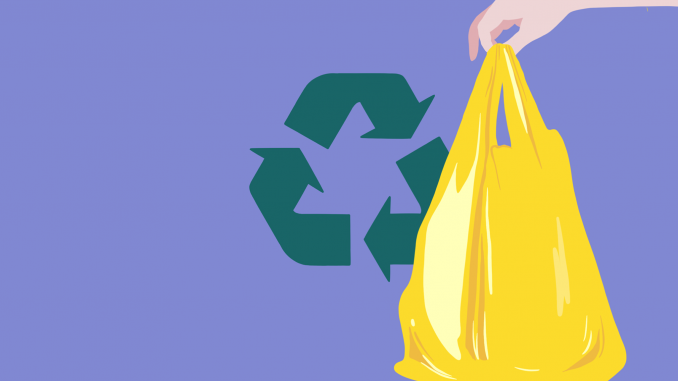
“Do you need a bag?”
I get asked this question every time I go shopping. Reusable bag in hand, I always say ‘no’ to a plastic bag.
This question may be insignificant to some people, but as of 2015, the world has produced 8.3 billion metric tons of plastic, with more than two-thirds of that eventually becoming waste, according to the Center for International Environmental Law.
Every plastic bag we use contributes to this, and the city has proposed a solution: ban plastic bags.
On June 20, Philadelphia City Councilman Mark Squilla introduced a bill that would ban any single-use plastic bags thinner than 2.5 millimeters, as well as impose a 15-cent fee per non-reusable bag. The purpose of this bill was to discourage frivolous usage of bags and encourage customers to bring their own.
Many businesses, like Whole Foods, already incentivize customers to bring their own bags by giving them a 10-cent refund per bag.
It’s not a lot of money but when you look at the bigger picture, every little bit makes a difference.
“This waste is not just ending up in the oceans … it is also accumulating in our streets,” said Nic Esposito, director of the city’s Zero Waste and Litter Cabinet.
Plastic is the fourth most common waste product in the U.S. and accounts for 17 percent of floating waste in river, he added.
Banning plastic bags is an opportunity to eliminate excess plastic waste and combat the negative effects of pollution. The bill also does not negatively affect businesses. In fact, it could help them.
“It’s not meant to punish small businesses because this bill requires the business owners to collect a 15-cent fee on the thicker bags, which cost more to supply, and a ban on thinner bags,” said Libby Peters, director of policy and performance for the Philadelphia Department of Commerce.
“This is a fee that the retailer keeps, not a tax to the city, so if there is a cost difference, that 15 cent fee would offset the cost,” Peters added.
The cost of rampant plastic pollution outweighs the momentary cost of switching to reusable bags, and we don’t have much time to make up our minds.
Emily Rodden, hub coordinator for the Sunrise Movement, a coalition of young people fighting to stop climate change, sees the urgency of addressing this situation.
“The way that we have consumed so many of the resources on this planet in such a short time is scary,” Rodden said. “I think people are more aware of it now, and I want to be positive and say if we can get as many people as possible on board, then the trajectory won’t be as bleak.”
Unfortunately, this is not going to happen overnight. But, this problem is reversible if we continue to think of solutions like Squilla’s bill.
“It’s hard because we have such a finite time to do this. Waiting for people’s ideology to change takes a lot of time. So, do we wait for the general consensus to change or do we call everyone to action right now?” Rodden added.
The next time you’re asked if you need a plastic bag, think about it first. The fate of our planet is quite literally in your hands.



Be the first to comment